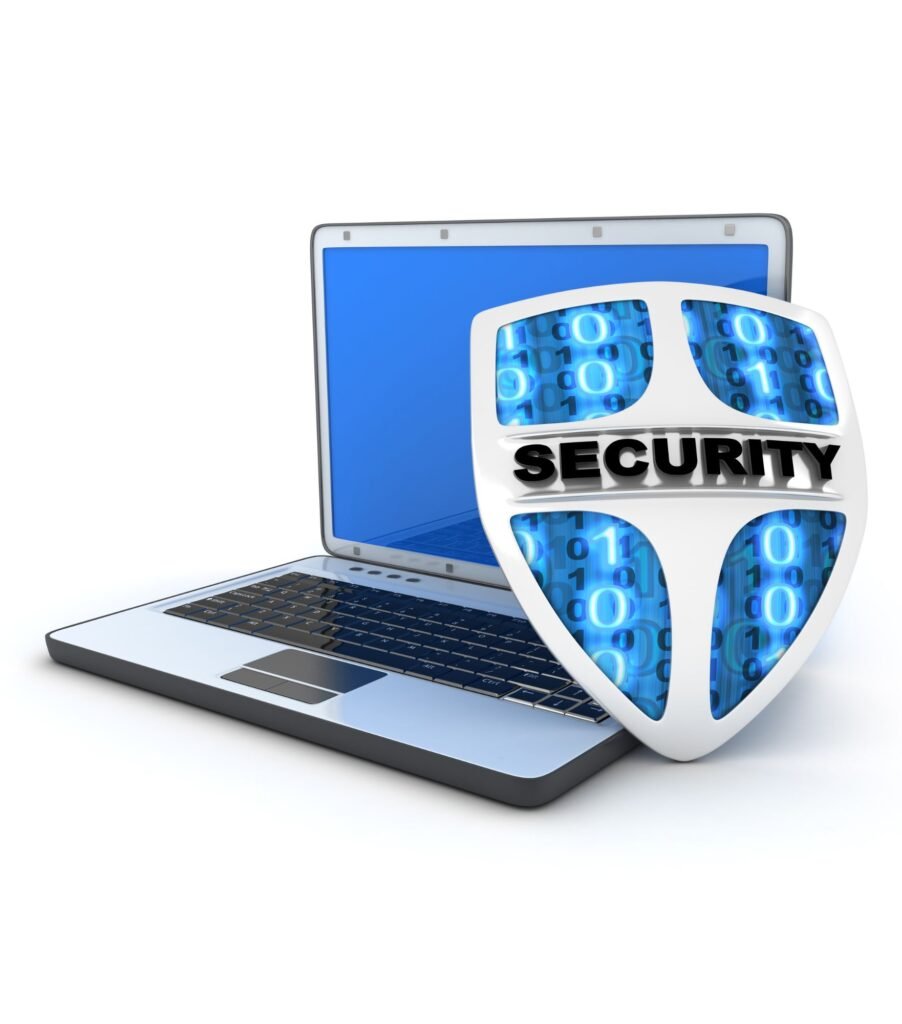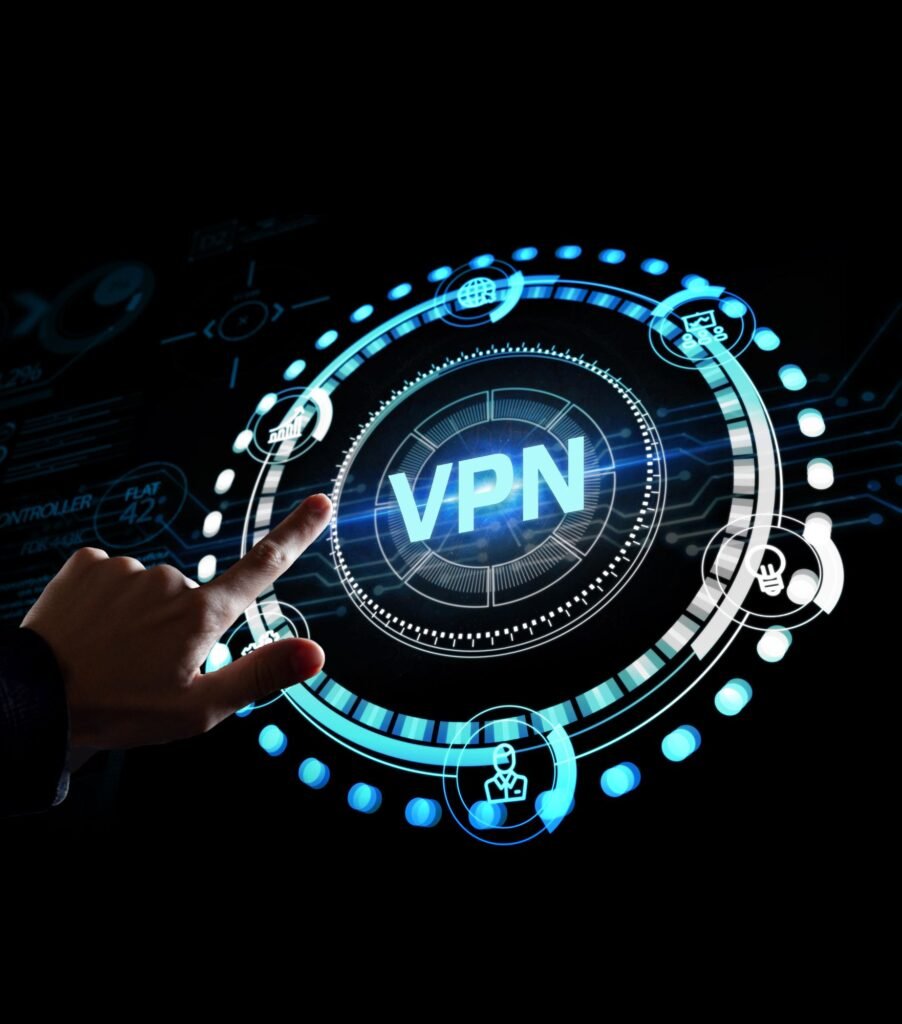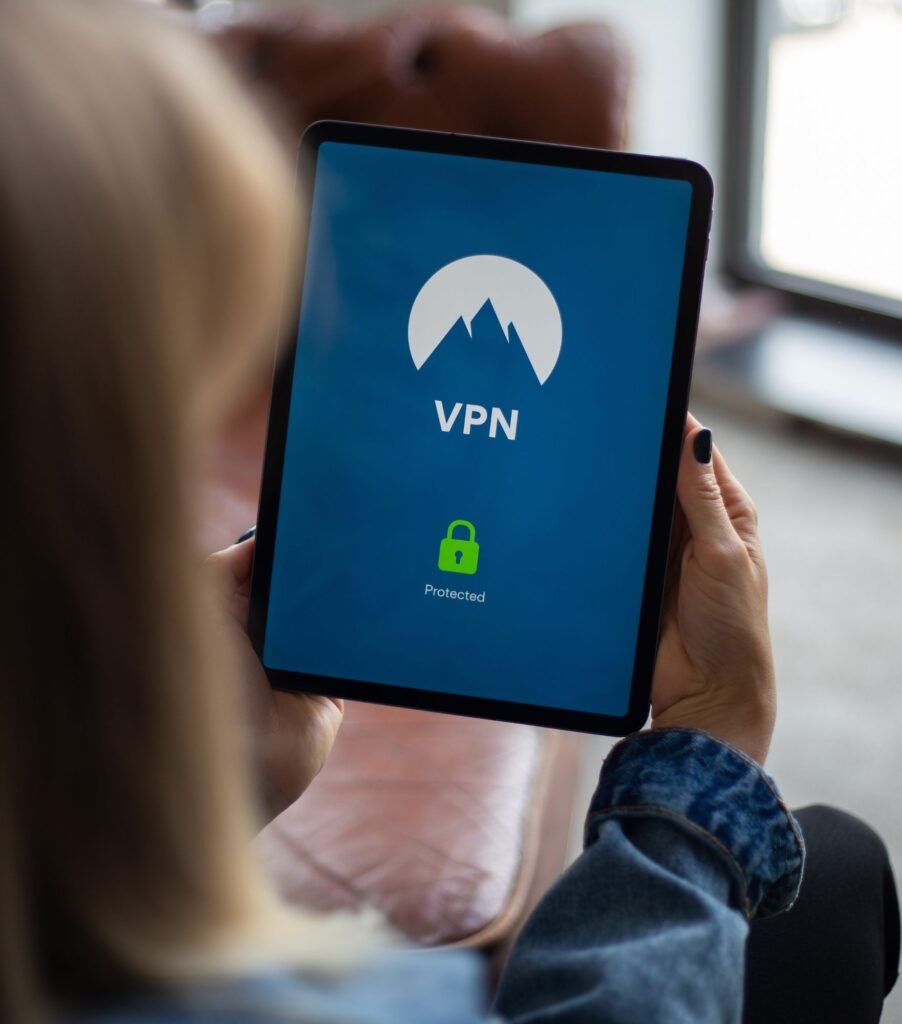What is a VPN, and why should it matter to you? Privacy is more important than ever in today’s digital age, where we spend so much of our lives online. Whether you’re scrolling through social media, shopping for deals, or streaming your favorite shows, your data is at risk of being accessed by hackers, advertisers, or even your internet service provider.
A VPN, or Virtual Private Network, is the solution to keeping your online activities private and secure. By encrypting your internet connection, a VPN helps shield your data from prying eyes and ensures a safer browsing experience. In this blog, we’ll explore what a VPN is, how it works, and why it’s an essential tool for protecting your digital life.
Disclosure: BBWebTools.com is a free online platform that provides valuable content and comparison services. To keep this resource free, we may earn advertising compensation or affiliate marketing commissions from the partners featured in this blog.
What is a VPN, and Why Is It Essential in Today’s Digital World?
So, what exactly is a VPN? Think of a VPN as a secret tunnel for your internet connection. A VPN creates a secure and encrypted link between your device—like your phone, laptop, or tablet—and the internet. Your online activities are kept private, and nobody can easily see what you’re doing.
Here’s a simple way to understand it: Imagine you’re sending a letter to a friend. If you send it without an envelope, anyone can read it while it’s going to your friend. But if you put that letter in a sealed envelope, only your friend can read it when it arrives. A VPN acts like that envelope, protecting your online data from prying eyes.
A VPN also masks your IP address, like your online home address. Instead of your real IP address, websites see the IP address of the VPN server you’re connected to. This helps keep your location and identity private, making it harder for advertisers or hackers to track you online.
A VPN is a powerful tool for browsing the internet securely and privately. Whether using public Wi-Fi at a coffee shop or wanting to keep your personal information safe, a VPN can significantly enhance your online experience.
How Does a VPN Work?
Now that you know what a VPN is, let’s dive into how it works. When you connect to the internet, your device sends and receives data to and from websites, apps, and services. Usually, this data travels through your internet service provider (ISP), which can see everything you’re doing online. But when you use a VPN, things change a bit.
Here’s a step-by-step breakdown of how a VPN works:
- Connecting to a VPN Server: First, when you turn on your VPN, it connects you to one of its servers. This server is a middleman between your device and the websites you want to visit. You can choose from various servers in different countries, which can help you access content that might be blocked in your region.
- Creating a Secure Tunnel: Once connected to the VPN server, your data is encrypted and sent through a secure tunnel. Any information you send or receive is scrambled, making it unreadable to anyone who might try to intercept it. So, even if someone were to tap into your internet connection, they wouldn’t be able to understand your data.
- Masking Your IP Address: As your data travels through this secure tunnel, your real IP address is hidden. Instead of showing your actual location, websites see the IP address of the VPN server. This helps keep your identity and location private, especially if you don’t want anyone tracking your online activities.

- Accessing the Internet: When you visit a website or use an app, your requests go through the VPN server. The server fetches the information and sends it back to you through the secure tunnel. This happens in just a few seconds to browse the internet safely without any noticeable delay.
In short, a VPN creates a secure connection that keeps your data private and your online identity hidden. It’s like having a personal bodyguard for your internet activities!
Different Types of VPNs Explained
Let’s take a look at the different types of VPNs available. Each type serves a specific purpose, so knowing which one might be right for you is good. Here are the main types of VPNs:
- Remote Access VPN: This is the most common type of VPN, especially for individual users. It lets you remotely connect to a private network (like your home or school). For example, if you’re at a café and want to access files on your home computer, a remote access VPN lets you do that securely.

- Site-to-Site VPN: This type is mainly used by businesses. It connects two or more networks, allowing them to communicate securely over the internet. For instance, if a company has offices in different cities, a site-to-site VPN enables their networks to share resources and information securely, as if they were all on the same local network.
- Personal VPN: This is what most people refer to when discussing VPNs. Personal VPNs are designed for individual users who want to enhance their online privacy and security. They’re easy to set up and can be used on laptops, smartphones, and tablets.
- Corporate VPN: Similar to personal VPNs but tailored for businesses, corporate VPNs provide employees with secure access to the company’s internal network. This is especially important for remote workers needing to access sensitive company data securely.
- Mobile VPN: These VPNs are specifically designed for mobile devices. They allow you to maintain a secure connection even when switching between networks, like moving from Wi-Fi to mobile data. This is useful for people who are often on the go and need a reliable connection.
Why You Should Use a VPN: Key Benefits
Using a VPN has many advantages that can enhance your online experience. Here are some of the key benefits of using a VPN:
- Enhanced Security: One of the biggest reasons people use VPNs is to protect their data. When you connect to the internet through a VPN, your data is encrypted, which means it’s scrambled and unreadable to anyone trying to steal it. This is especially important when using public Wi-Fi, like at a coffee shop or airport, where hackers might try to access your information.
- Privacy Protection: A VPN helps keep your online activities private. Without a VPN, your internet service provider (ISP) can see what you’re doing online and may even sell that data to advertisers. With a VPN, your ISP can’t see your browsing history, so you can surf the web without being tracked.
- Access to Geo-Restricted Content: Many streaming services and websites restrict access based on your location. For example, certain shows on Netflix might only be available in specific countries. Using a VPN, you can change your virtual location to access content unavailable in your area. Connect to a VPN server in the country where the content is available, and you’re all set!
- Bypassing Censorship: Access to certain websites or social media platforms is blocked in some countries. A VPN allows you to bypass these restrictions by connecting to a server in a different country where those sites are accessible. This is particularly useful for people living in places with strict internet regulations.
- Secure Online Gaming: Gamers can also benefit from using a VPN. It can help reduce lag and provide a smoother gaming experience. Additionally, it protects your gaming data and keeps your identity hidden while you play online, which can be important for competitive gamers.
How VPNs Are Used: Common Applications
VPNs are useful in a variety of everyday situations. Here are some common ways people use VPNs:
Secure Remote Work:
As more people work from home, many companies encourage employees to use VPNs to access company networks securely. This ensures that sensitive information, such as client data or internal documents, is protected from unauthorized access.
Streaming Movies and Shows:
If you love binge-watching your favorite series but find some content unavailable in your country, a VPN can come to the rescue. By connecting to a VPN server in another country, you can access libraries of content that would otherwise be restricted.
Safe Browsing on Public Wi-Fi:
Using a VPN can protect you from potential threats when you’re at a café, airport, or any public place with free Wi-Fi. Since public Wi-Fi networks are often not secure, a VPN adds an extra layer of security to keep your personal information safe from hackers.
Bypassing Work or School Restrictions:
Some workplaces or schools block access to certain websites or social media platforms. You can bypass these restrictions using a VPN and access the sites you want without issues.
Protecting Personal Information While Traveling:
If you travel abroad, your online activities can be at risk, especially on foreign networks. A VPN helps you stay secure and keep your personal information safe.
Torrenting Safely:
A VPN can help keep your activities private if you download files using torrenting. It hides your IP address from other users on the torrent network, making it harder for anyone to track your downloads.
Potential Drawbacks of VPNs
While VPNs offer many benefits, it’s also essential to be aware of some potential drawbacks. Here are a few things to consider before using a VPN:
- Reduced Internet Speed: One of the most common issues users face when using a VPN is decreased internet speed. Because your data must travel through the VPN server, loading websites and streaming videos can take longer. However, this impact varies depending on the VPN service and your chosen server. Some premium VPNs are designed to minimize speed loss, so it’s worth researching options.
- Cost: While free VPN services are available, many come with limitations, such as slower speeds, fewer servers, and weaker security. Quality VPNs typically require a monthly or annual subscription fee. Investing in a good VPN service is essential for those looking for robust protection and features, but it’s an added expense to consider.

- Compatibility Issues: Not all devices support VPN applications. While most smartphones, tablets, and computers have easy-to-use VPN apps, some smart TVs, gaming consoles, or routers might not be compatible. This can limit your ability to use a VPN across all your devices seamlessly.
- Potential for Blocking: Some websites and services actively block traffic from known VPN servers. This means that even if you’re connected to a VPN, you might not be able to access certain sites, especially streaming platforms. This can be frustrating if you’re trying to watch a show or access content while using a VPN.
- Trust and Privacy Concerns: Not all VPN providers are created equal. Some free or less reputable VPNs might log your data or sell it to third parties. It’s crucial to choose a trustworthy VPN service with a solid privacy policy to ensure your data remains protected.
While these drawbacks may seem significant, many users find that the benefits of using a VPN—such as enhanced privacy and security—far outweigh the potential downsides. It’s essential to weigh these factors based on your needs and online habits.
How to Choose the Best VPN Services
With so many VPN options available, choosing the right one for your needs can be overwhelming. Here are some tips to help you find the best VPN service:
- Security Features: Look for a VPN that offers strong encryption protocols, such as AES-256, which is the industry standard. Additionally, features like a kill switch (which disconnects your internet if the VPN drops) and DNS leak protection are essential for keeping your data safe.
- Server Locations: Check how many servers the VPN has and where they are located. A larger number of servers in various countries can help you access more content and improve your connection speed. If you’re interested in streaming from specific regions, make sure the VPN has servers in those areas.
- Speed and Performance: Research the VPN’s performance by checking user reviews and speed test results. Some VPNs may slow down your connection more than others, so it’s essential to find one that maintains good speeds for browsing and streaming.
- User-Friendly Interface: A good VPN should be easy to use, even for beginners. Look for one with a simple and intuitive interface that makes it easy to connect to servers and adjust settings.
- Customer Support: Reliable customer support is crucial, especially if you encounter issues while using the VPN. Look for services that offer 24/7 support through live chat, email, or phone.
- Pricing and Plans: Compare the pricing plans of different VPN services. While some offer free trials or money-back guarantees, others may have more affordable long-term plans. Make sure to find a service that fits your budget while still providing quality features.
- No-Log Policy: Ensure that the VPN you choose has a strict no-log policy, meaning they don’t track or store your online activities. This is vital for maintaining your privacy online.
Conclusions
In today’s digital age, where our lives are increasingly intertwined with the internet, understanding how to protect your online privacy is crucial.
What is a VPN? A VPN, or Virtual Private Network, is one of the best tools for enhancing security and maintaining anonymity while browsing. By encrypting your data, masking your IP address, and allowing you to access content worldwide, a VPN empowers you to have a safer and more enjoyable online experience.
The advantages of using a VPN are significant, from streaming your favorite shows without restrictions to securing your connection on public Wi-Fi. While there are potential drawbacks, such as reduced speed and the cost of premium services, the benefits—like enhanced privacy, security, and access to global content—often outweigh these concerns.
As the internet continues to evolve, staying informed about your online safety is more important than ever. Using a VPN is a proactive step toward protecting your digital life.
Are you ready to take control of your online privacy and security? Now that you understand what a VPN is and how it can benefit you, it’s time to consider getting one for yourself! Whether you want to stream content without restrictions, securely browse the internet on public Wi-Fi, or protect your data from prying eyes, a VPN can help you achieve that.
Explore various VPN services to find one that meets your needs. Look for features like strong encryption, a user-friendly interface, and a no-log policy to ensure your privacy. Many VPN providers offer free trials or money-back guarantees so that you can test them risk-free!
Articles You May Like
Source Links
- What is a VPN? How It Works, Types of VPN – https://usa.kaspersky.com/resource-center/definitions/what-is-a-vpn
- How Does a VPN Work – https://www.cisco.com/c/en/us/solutions/small-business/resource-center/security/how-does-a-vpn-work.html
- Is a VPN Encrypted & Does it Encrypt All Traffic? – https://www.security.org/vpn/encryption/
- What Is a VPN and What Does It Do? – https://www.avg.com/en/signal/what-is-a-vpn-and-why-should-you-use-one
- Is Getting a VPN Worth It? 4 Reasons Why You Should – https://www.cyberghostvpn.com/privacyhub/is-a-vpn-worth-it/
- CyberGhost VPN – https://www.cyberghostvpn.com/privacy-tools
- What Is a Proxy Server & Why VPNs are Better – https://www.cyberghostvpn.com/privacyhub/what-is-a-proxy/
- Complete Privacy Online: Protect Yourself with CyberGhost – https://www.cyberghostvpn.com/features/why-cyberghost-vpn
- 5 Reasons You Need a VPN – https://www.cyberghostvpn.com/privacyhub/why-vpn/
- VPN Features and Use Cases (2024 Update) | CyberGhost VPN – https://www.cyberghostvpn.com/features